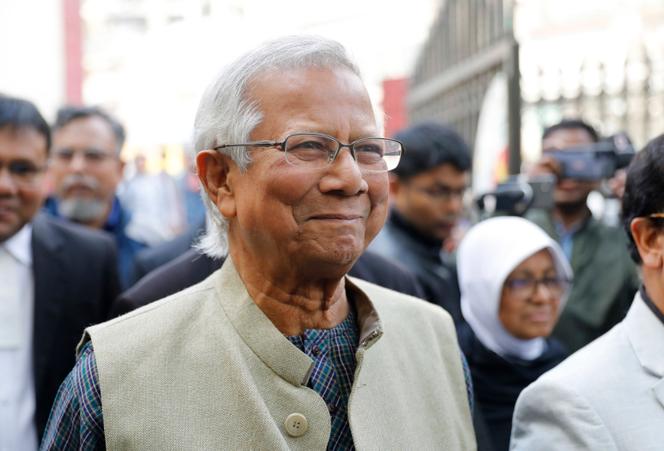


His name was on everyone's lips. Since the flight of autocratic prime minister Sheikh Hasina on Monday, August 5, Muhammad Yunus, 84, winner of the 2006 Nobel Peace Prize, had been tipped to head the interim government of his country, Bangladesh. It has now been confirmed: The transitional government will be formed "with Yunus as its leader," a decision taken at the end of a lengthy meeting on Tuesday between President Mohammed Shahabuddin, whose role is largely ceremonial, senior army officials, and also student leaders from the Students Against Discrimination coalition.
After conducting the revolt that brought down Hasina, the students called Yunus to the rescue and officially put his name forward on Tuesday morning. The day before, Yunus claimed that politics was "not my cup of tea." But, given the circumstances, the economist couldn't refuse. "If action is needed in Bangladesh, for my country and for the courage of my people, then I will take it," he said in a written statement to Agence France-Presse (AFP), from Paris, before he returns soon to his country.
Born in 1940 in Chittagong, a large port city in southern Bangladesh, Yunus was awarded the Nobel Peace Prize for his contribution to his country's economic development. Thanks to his microcredit concept and founding the Grameen Bank, which lends money to farmers, he has helped to eradicate extreme poverty in Bangladesh. "Human beings are not born to suffer the misery of hunger and poverty," said Yunus on receiving the prestigious award. Nicknamed the "banker to the poor," in 2006 he confided to Le Monde that he saw himself more as a "lender of hope."
Strong from his immense popularity, the charismatic Yunus briefly considered setting up a political party in 2007. Quickly abandoned, this project nevertheless earned him Hasina's enduring hostility. The "Iron Lady" saw him as a rival. She had made him her bête noire and used the state to serve her personal vendetta.
Hasina humiliated him in her speeches and regularly accused him of "sucking the blood of the poor" by charging relatively high interest rates. Yunus was the target of judicial harassment and was prosecuted in over a hundred cases. In January, he was sentenced to six months in prison by a Dhaka court for violating labor laws. Released on bail pending appeal, he has always denied the facts.
The future head of government, a fierce critic of Hasina's regime, welcomed her departure. He compared the event to Bangladesh's independence from Pakistan in 1971, a "second liberation." During her 15-year reign, the former prime minister certainly contributed to the country's spectacular economic progress, but she also led it into a dictatorial spiral. Since July 1, students have been demonstrating to demand the abolition of a quota system in civil service recruitment against a backdrop of acute unemployment among young graduates. Rather than listen to the anger of the street, the government tried to brutally repress it. But the movement only grew stronger, until the "Iron Lady" was toppled.
You have 44.4% of this article left to read. The rest is for subscribers only.
